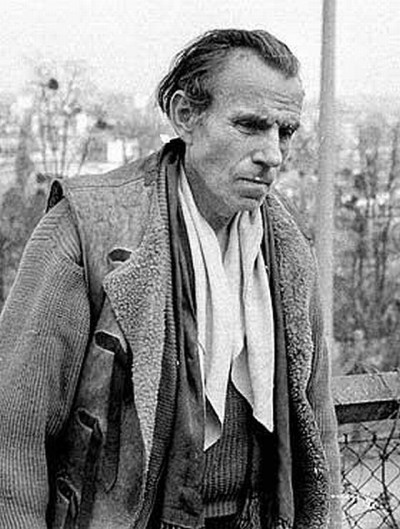 |
| You can just feel the cynicism steaming off of him. |
That's the basic message I get from Louis-Ferdinand Celine's Journey to the End of the Night.
Oh, there is nothing that gets this guy's dander up than seeing people operate in a happy little bubble. This includes doing anything that may give someone a sense of purpose down to the "enjoyment" of sexual relations.
It's all just misery on the long slow march to death. But it pushes him to go and see something different all over the world in an effort to quench his bad attitude. He goes from a soldier in the war to an African colonist to a New York indigent to a factory worker in Detroit to graduating from medical school and settling into a small village practice in search of a context that makes sense. But, you come to ask yourself, is it to quench his negative attitude or to fuel it?
There is something really fun about Celine's misanthropy. His black and white thinking pushes him to write in huge hyperboles and puts a sense of the unpredictable in all his sentences. He wallows in irony and his writing is exciting for it.
How can you not love a book that includes a grandmother at the end of her life with nothing to live for who lives at the end of the garden who transforms into a powerful beast of purpose when she realizes that her son and daughter-in-law have tried to kill her by putting a bomb in her rabbit hutch? Her glee at being murdered is weirdly life-affirming.
Celine is the father of all contemporary writing in my opinion. If you like Jonathan Ames, Mil Millington, Tibor Fischer, or Martin Amis, you will recognize the tempo and cadence of Celine's writing. Tibor Fischer, I just found out, titled his book Journey to the End of the Room, a book about a woman who loves to travel but hates leaving the house, in a nod to Celine.
Although, I think this book is fantastic, I can NOT get on board with the fact that Celine went on to publish a series of anti-Semetic pamphlets in the 1940's. He thought Hitler was too much of a "Jew." It seems to be so unnecessarily purposeful for someone so nihilistic.
And now I feel like those punk rock purists who have to explain why they have the first Skrewdriver album.
No comments:
Post a Comment